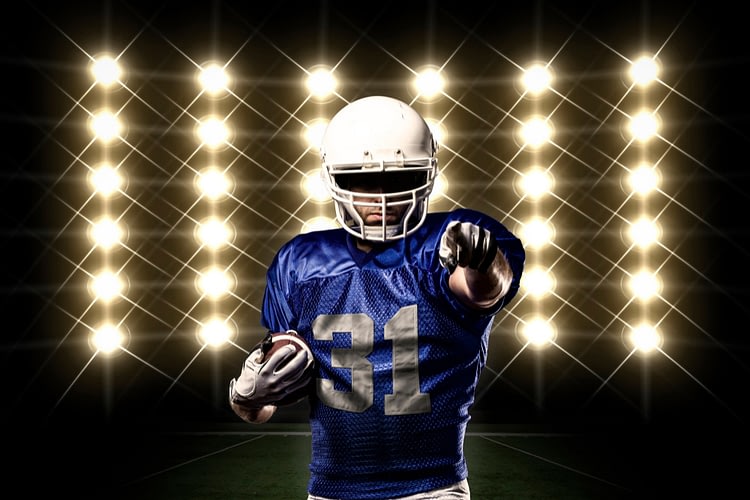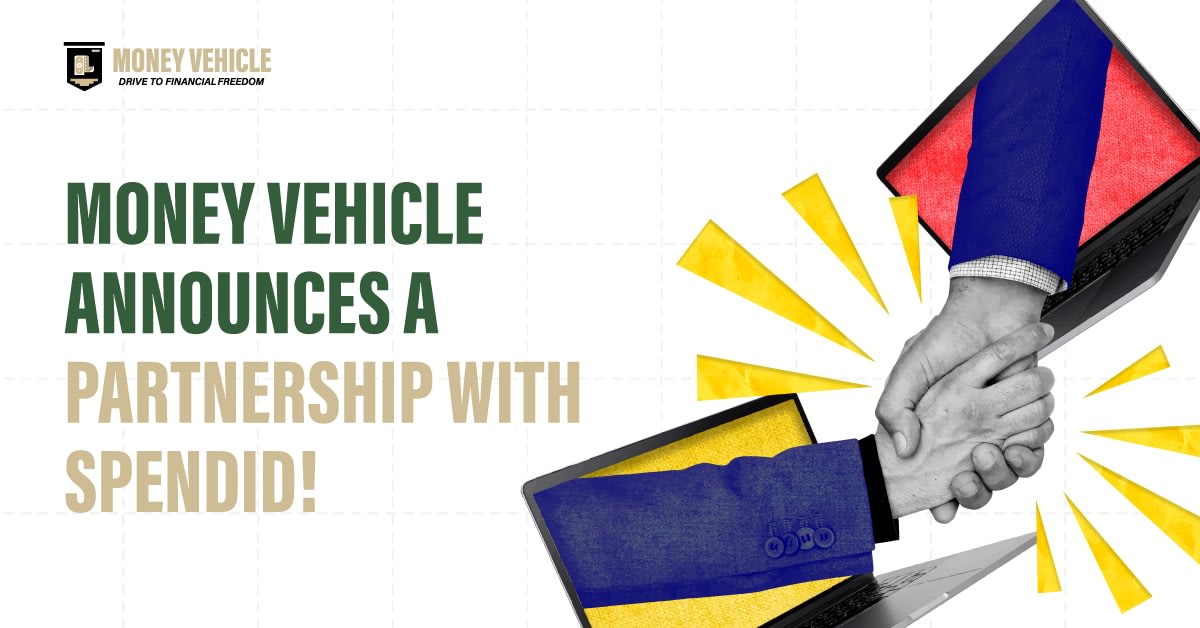A hit on a punt return that I never saw, on a player who wasn’t me, was the moment I realized my NFL career was at its end.
When you played football for as long as I did — picking up a helmet for the first time in high-school, for a full college career at Washington State, through three years of trying to stick on an NFL roster, and then four seasons as a member of the 53— the sounds of the game can illustrate more than the physical involvement. The noises of the chaos become categorized and lyrical. In composite, they form a tune that becomes so familiar that you don’t even realize you’re listening, but each sound has a very clear definition that your mind recognizes instantly.
There is the pop of a chinstrap or a grunt of anguish or the thunderous clapping of helmets striking together that make up the symphony that accompanies football’s effort and inherent violence. These noises are — at least in terms of this violent sport — normal, and you can read their meaning, much like how the differing cacophonies of a bowling ball striking the pins indicate just how squarely the roll hit the pocket.
The sound I heard on one play, though, filled my eardrums with a piercing, unfamiliar tone. Its sound was not at all normal, its pitch and tenor screaming destruction. I never saw the actual hit when it happened, but hearing it on the field and experiencing its aftermath would change me forever.
It was during the first half at Ford Field — the visiting Buffalo Bills against my Detroit Lions — that so far had felt very standard, which is to say exhilarating, forceful, and routine all at the same time. As expected prior to the game, the defensive units for both sides had shown their prowess. (Ultimately, the Bills would win the contest at the gun, on a 58-yard field goal from Dan Carpenter, but that didn’t end up mattering much to me. The press the next day will focus on the Coach Jim Schwartz being carried off the field after his victorious return over past team, but my lasting image surrounds the other man carried off the field that day.)
A stalled drive led to a punting situation, and I was the Lions’ personal protector, or the blocker directly in front of the punter. As such, I was responsible for making the cadence calls to determine what the blocking count will be, and when the ball will be snapped to execute the punt.
The Bills’ return unit was in a standard “six-man box,” meaning both of our outside gunners each had two Bills double-teaming him. This alignment indicated that they would forgo a block attempt, instead setting up a return. Before my “set” call, though, the R1 — the first possible rusher on the outside — started creeping in toward the center of the formation. I yelled out “Easy, Easy,” alerting my teammates that a new count was coming, but this was a pretty standard formation shift, and the Bills were still setting up a return.
There was nothing special about the subsequent kick. As I crossed through the line of scrimmage toward the punt returner, I picked up who had the responsibility for blocking me. We both did a little two-step dance, and I swiped his hands away. He was faster than I was, so I hoped to control our encounter with superior body positioning. Just before we cleared the mosh pit, another opponent from my left crossed in front of my face … but didn’t hit me. I thought this was peculiar, because it’s a rare day when a player passes up the chance to strike someone in the wrong color jersey.
This guy was on a mission somewhere else, I thought.
Then, I heard it: the piercing shriek of a chord played out of tune.
Days later, in special teams film review, moments like these are glorified. The film will flicker on the screen, the collision will unfold, and someone will note that a player had been “invited to the cocktail party.” That’s a euphemism to describe a fencing response, the body’s reaction to a concussion where, as a player is lying on his back, one or both of his arms will reflexively bend upward at a 90-degree angle. If you envision him standing upright with his arms in that position, it looks like he’s carrying a mixed drink in his hand(s).
Getting your brain smashed around isn’t very much of a party, but violence is a huge part of the business we have chosen, and so are the ways to detach yourself from it. All players accept these facts when we sign to play the sport. And unlike the police, the military, and firemen who put their lives on the line and have to deal with levels of violence and/or gore that would chill the souls of most people, our calling was not to save people or keep them from harm, but rather to inflict it so onlookers may be amused.
The money earned as a pro may cloud the subject, but you quickly realize with each snap that the boogieman has been unleashed, and this dream we aspired to since we were kids also becomes our daily nightmare. With the glory, there is pain. And with the pain, there is denial. You know the risk is there, but you cannot carry it with you, or you’re not going to last very long in the sport.
So, there’s gallows humor about it. You joke about it. You give it nicknames. You desensitize the violence and the risk and the carnage, never forgetting about its reality and omnipresence, but pushing it deep into the recesses of your brain so you can overcome it on each play, so you can perform. So you can remain employed and enjoy the benefits, such as they are, of this in-all-ways pain-filled vocation. So you can, on a daily basis, survive the Dream.
No one wants to see a teammate or an opponent injured like that, but on every play, you have to be in the mental mode to inflict this harm.
The game’s speed creates its chaos, and with that same speed, each play is over. I was not in on the actual tackle on this punt, but everyone in the pile-up around the ball carrier still feels the job requirements. As I separated myself from the others and initiated the standard post-play evaluation process that follows each whistle, my body was intact, but my ears were screaming.
The usual sounds and sights of post-play celebration and regret had been interrupted by a sudden crescendo. A collision had left the broken in its wake. Whistles blared, and our defensive unit did not even approach the field.
One Lion began rolling around, clearly in pain. This is only a good sign when compared to the Bills player lying motionless.
Someone “feels” every hit in the NFL, and the associated reaction to the pain becomes normalized. Most interludes are met with the emotional equivalent of ‘Tape him up and blow the whistle, so we can start anew.’
This time, though, was not business as usual.
The TV broadcast returned from commercial as the trainers were backing everyone up. My fallen brother’s eyes were being probed with flashlights, and the doctors were speaking in mumbles. Medical directions started to become loud and clear enough to make each of us feel as if we were participating. We all searched for answers, and a church-like quality began to descend upon the field; quiet and solemn, the spectacle of a Sunday in the NFL has been halted.
Each of us retreated to his own place of contemplation and reflection. I begin to question the cause of the scene, and the game’s simplicity began to strangle me anew. Someone was given a job to do, and now it’s the devil to pay. There is no further reasoning with a man whose paycheck comes from the outlet of his aggression, nor should there be. Each of us knows we are trying to take the food off each other’s table. This sense of urgency and finality is what provides the sport of football with its ultimate competitive spirit.
Now the player’s face-mask is being unscrewed with a power drill, and care is taken not to provoke his neck, the nerve bunker that already is inflamed from today and partially disabled by the composite toll of his career. The shell of his helmet remains on, but without the mask, plenty can be seen in his eyes.
Eyes are extremely telling at the professional level. A tried-and-true veteran can lock eyes with someone and tell you what they ate for breakfast. They’re also a window into the soul, an indicator of one’s self-confidence and fire. At this moment, looking around at my peers, their eyes began showing the one thing you cannot afford to show in this arena: vulnerability.
Walking off the field, every step took my thoughts to a different part of my career. The silence birthed by this one player’s brokenness gave me a peculiar moment to reflect. I looked into the stands and saw my wife holding our infant daughter. Oblivious to the awkwardness of the moment, my first-born was wearing her pink headphones and playing with her mother’s hair. The risk of what I did for a living began to overwhelm me.
I stopped in my tracks and looked down at the turf. A conversation began with my cleats. “Which way are we gonna go? Are you still in this?” I looked up again, and in a stadium of 80,000, I only saw my girls. My mantra has always been ‘I am doing this for you’ and as I took another step heading in the direction of the locker-room, hoping to find an escape from this dilemma, I tell myself ‘This also I am doing for them’. There had been other times when I have struggled with these issues; anyone who trains with an appetite for blood has had moments of challenge. But never had I acted upon them. Never had they won out over my honor. When every previous play had ended, I suppressed whatever thoughts I had, and prepared for the next one.
This time, it is different. I found myself instantly craving finality, an end to this gamble, and began searching for the strength to leave this all behind me. I took another step, focusing on the image of my wife and child, and the fear of leaving them behind, one way or another.
Then I’m reminded of the game’s beauty with a simple memory, the first time I wanted to quit, the first time my body, mind, and soul had all reached their bitter end. On my hands and knees at Mission Viejo High-School’s field, dreading the last few 110-yard sprints. I had reached my limit when an arm lifted me away from the sweat and vomit. I am staring at this teammate who just became a brother, and realizing the greatest lesson football will teach me: I control my breaking points.
I finally sat down at the end of the bench. The far end, the closest place to the locker room without being there. The voice in my head began to grow silent. No one ever watches the guys on the bench; it’s like they are hiding in plain sight. The bench is where the emotions from the game are grudgingly unmasked. As I sat down, the only other player on the bench is the survivor of the impact, the hit that led to all of this. He looks confused and distant. I knew this look. His train of thought is processing more the train than the thought.
I wandered over and gave him a tap on his pads as if to say ‘You did your job,” but his confused look is endless. Soon, he’ll receive a plus for this play, possibly even a BIG HIT acknowledgement. In the moment, though, it didn’t seem so grand. He and I both sat in a quiet haze, he having done his job and survived, me having survived and wondering why I would tempt fate again.
I have no idea why a fallen gladiator gives an acknowledgement to his audience. Is this done out of appreciation, or a debt owed? Regardless, in doing so, he maintains his ever-dwindling place in this game. He also sends his fellow warriors a message: He will fight another day.
Secured to the gurney now, our injured brother has been deemed ready to be moved. The crowd, and the players, too, are all waiting for the moment of relief. Where is the sign? With a simple thumbs up or wave, the stadium can collectively exhale, and the game can, somewhat awkwardly, move on.
The ambulance rolled off the stadium floor, the day’s offering to the football gods inside it. None of us knew, nor by this time even cared, if the resumption of the game was helpful to the man left on football’s altar. Then comes the polite applause, in which the undercurrent is a call for more blood.
“Next Man Up” is an essential part of football’s credo, but it inherently requires everyone to re-submit to the sacrifice.
My dreams became even more haunting. Even though this particular toll had been paid, it didn’t mean the demons’ appetite was satisfied. I am a warrior, and when the drums beat for more war, I grabbed my armor, but the two heartbeats sitting in section 120, row 16, placed a different lens on this entire fantasy. I felt my wife’s eyes on the back of my jersey. She knew the weight this injury must have placed upon me. She knew my building fears, and she knew she must pay the price, as well. Her expectation after a game, simply, was to bring me home — beat up and broken down, but home.
The game resumed, and all involved instantly feel the routine of the next play, but it wasn’t the same. I pantomimed what I thought I should be doing, awaiting the call that would throw me back into the fire. Whatever the play call, the base job criteria will be the same: ‘See that 250-pound mountain of a man over there? Go earn your check.’
I knew, though, that my Rubicon had been crossed. No longer would I look to punish opponents. I would try to accomplish my job with as little of that as necessary. My new mission was to simply walk off that field. I could no longer compete like those willing to risk it all.
It wasn’t just this hit, but the accumulation of all the hits, the blurs, and the recent articles that shook me. This particular collision, though, made it perfectly clear to me that I was looking for the next possible exit sign. I just needed the courage to do it, to be able to turn away from the brothers I bled with and the game that gave me so much. Nothing should delay this decision, but still, I stood ready for the next play. You can’t suddenly give up what you have used to define yourself for your whole life, but change was coming.
I never even saw the hit. Yet hearing it, and feeling it, changed me forever. I began this football dream as an unbreakable beast, but quickly sobered up to the pain and fear that kept my broken parts together. Chin-strapped, looking ready for the call, I took that next step onto the field thinking, ‘I am done.’







